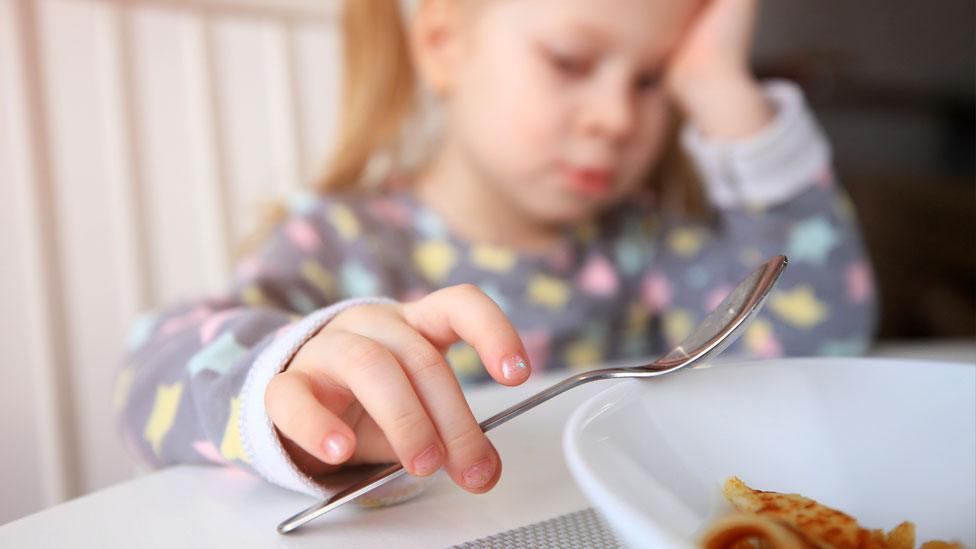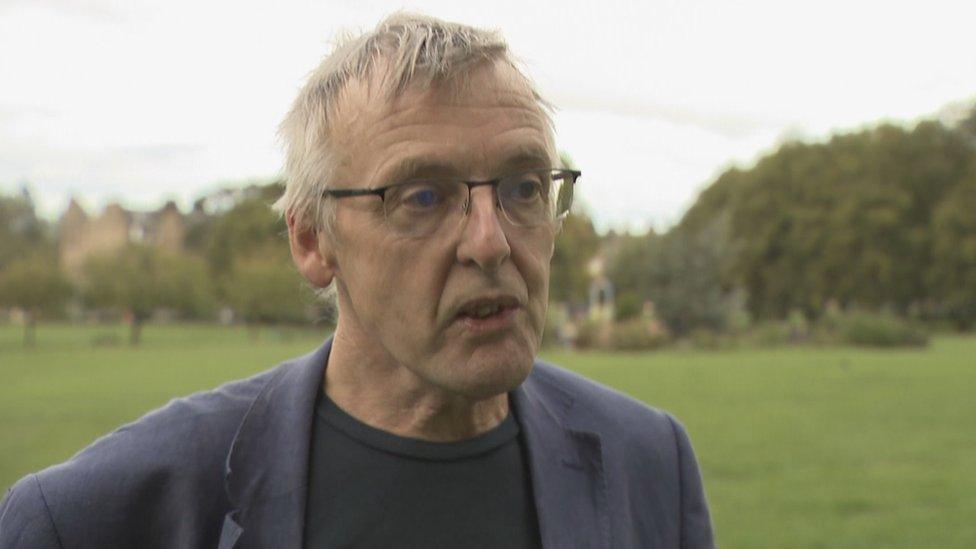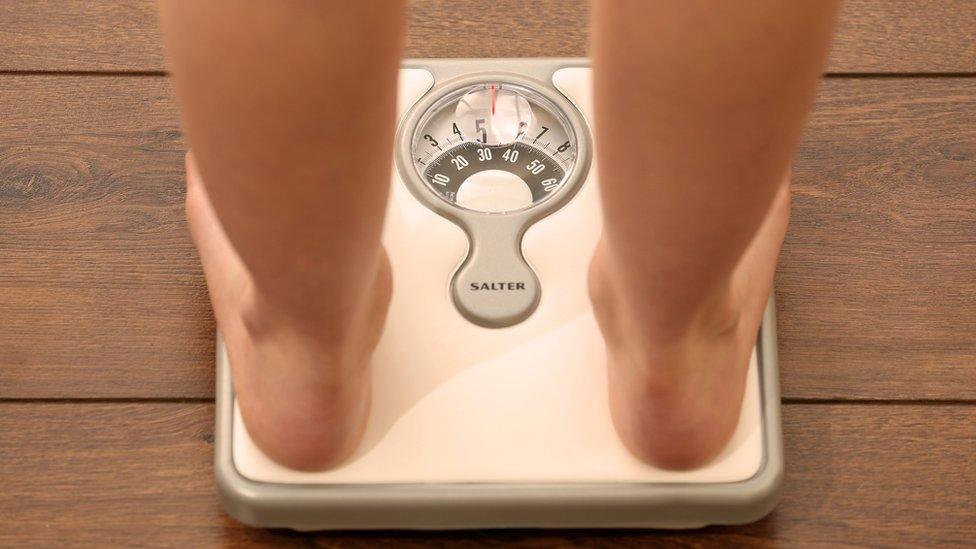Thousands of children treated for malnutrition in Scotland
- Published

Thousands of children have been treated for malnutrition in Scottish hospitals, according to new figures.
NHS Greater Glasgow and Clyde alone recorded 3,895 admissions of children under the age of 18 to an acute site for malnutrition from 2018 to 2022.
Figures obtained by The Herald newspaper, external show numbers almost doubled last year from 572 to 1000.
The Scottish government said it had made tackling child poverty a "national mission".
The health board said individual patients could account for more than one hospital admission.
NHS Lothian figures revealed 928 children were red flagged for dietary support from January 2018 to June of this year.

Pete Ritchie of Nourish Scotland said the Covid pandemic had a massive impact on children's physical and mental health
Experts fear the situation will only get worse due to the cost of living crisis caused by rising inflation and soaring energy prices.
Pete Ritchie, of food policy organisation Nourish Scotland, described the Covid pandemic as a "disaster" for the physical and mental health of children and young people.
He told BBC Scotland the pandemic triggered a spike in obesity and eating disorders.
Mr Ritchie added: "Supermarkets need to help us with this cost of living crisis by bringing down the cost of a basket of healthy foods."
John Dickie, director of Child Poverty Action Group Scotland, said the figures would nOt all be about poverty.
He added: "It is a stark reminder of just how important it is that government at every level acts to ensure that all families have the resources they need to give their children a healthy diet."

NHS Tayside said 186 referrals had been made to paediatric dieticians for "faltering growth" in Dundee, Perth and Kinross over the past three and a half years.
The figures, obtained under freedom of information, do not include GP data, where most children at risk of malnutrition would be treated.
NHS Forth Valley said releasing the figures could lead to children being identified while NHS Grampian also recorded very small numbers.
NHS Borders, NHS Dumfries and Galloway and NHS Western Isles said no children had been treated for malnutrition while NHS Ayrshire and Arran and NHS Fife did not provide data.
Malnutrition refers to deficiencies, excesses or imbalances in an individual's intake of energy and or nutrients.
Undernutrition can result in low weight or height for age or a child being underweight.
'It is important to be vigilant'
Children who are overweight or obese may also be at risk due to poor diet while illness can affect the body's ability to absorb nutrients.
Ada Garcia, public health nutritionist at the University of Glasgow, said: "Monitoring true undernutrition associated to poverty is important for the identification of cases needing clinical treatment and for the provision of social care.
"In a population, independent of wealth, there will always be a number of children who are not growing according to the expected growth curves and standards and those cases need to be documented and monitored.
"In the UK the threshold for true poverty-associated undernutrition in childhood is very mild but it is important to be vigilant."
Free school lunches
A Scottish government spokesperson said: "Tackling child poverty is a national mission for this government and we are using all of the powers and resources available to us to help those struggling to make ends meet. "We have allocated almost £3bn to a range of supports this year that will contribute to mitigating the impact of the increased cost of living on households."
They said this included increasing the Scottish Child Payment to £25 per eligible child per week from November and offering free school lunches during term-time to all 275,954 pupils in primaries 1 to 5.
The spokesperson added this will be extended further to include primary 6 and 7 pupils during the course of the current parliament.
A short life working group is also being set up to make recommendations on a framework for the prevention of malnutrition and dehydration.